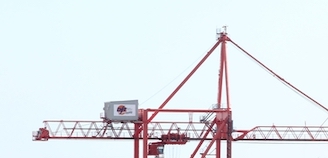About 54% of Irish firms were impacted by an “increased regulatory burden” in 2020 due to Brexit, according to a report from the Central Statistics Office (CSO) on Global Value Chain (GVC) participation.
Further, the report said 43% of companies reported that Brexit made it difficult to acquire raw materials or intermediate products from suppliers in the UK, while 30% had difficulty transporting goods produced in the UK back to the enterprise or transporting goods to final customers.
Nonetheless, the United Kingdom remained the most popular location for both global purchasing and supplying of goods/materials and services.
Colin Hanleyof the CSO’s Business Statistics Division said: “The results of this publication show the level of participation in GVC arrangements in 2020.
“Almost half (47%) of enterprises (with 50 or more persons engaged) purchased goods/materials abroad for use in their own production, while 24% supplied goods/materials abroad.
“More than a third (35%) purchased services abroad, while 22% supplied services to another firm overseas.
“Enterprises indicated that Raw Materials (21%) and Machinery & Other Technical Equipment (20%) used in a firm’s production were the most common purchases from abroad, while final goods designed by the company for resale (13%) were the most supplied.
“Information Communication & Technology services were the most purchased service from abroad.
“The majority of enterprises that purchased or supplied goods/materials and services abroad did so with the United Kingdom.
“COVID-19 impacted GVC arrangements both home and abroad.
“Due to COVID-19, more than two in five enterprises (44%) had difficulty acquiring raw materials or intermediate products from suppliers domestically, compared with 40% of enterprises having difficulty with suppliers from abroad.
“Meanwhile more than half (54%) of enterprises had been impacted by an increased regulatory burden due to Brexit.”
